Shaz Kahng knows a thing or two about the determination and hard work it takes to make it in a man’s world. In fact she wrote two books on just that topic.
As a highly accomplished executive, author, and speaker, Kahng has made a lasting impact on the business world with her bold ideas and unwavering commitment to excellence. Throughout her career she has shattered glass ceilings and challenged conventional thinking. Now, she leads from the boardroom of GoPro, a publicly traded company listed on Nasdaq.
The first female to hold a global business P&L at Nike, Shaz Kahng headed up the Nike Cycling business and made it profitable for the first time in its history. Before that, she blazed a path to become the youngest and first female minority partner at the consulting firm of Kurt Salmon Associates, a part of Accenture Strategy.
After Nike Kahng decided to create her own destiny by taking the top job at multiple companies as CEO where she achieved the change and turnarounds that many thought were impossible.
A strong believer that success is not just about skill but equally about will, she discovered a handful of superpowers that she shares in her award-winning “Ceiling Smashers” fiction series for anyone interested in a career in business. She also shared some advice in a recent talk with Google which you can check out at the end of our Q&A.
With her unique blend of strategic thinking, creativity, and a never-give-up attitude, Shaz Kahng is a force who continues to inspire and lead by example.
Q&A with Shaz Kahng
What is your go-to cocktail?
I typically enjoy a nice glass of dry Sauvignon Blanc. But if I had to choose a cocktail it would be a Caipirinha; I was introduced to that tasty concoction while working in Brazil and it brings back memories of being on a sunny beach in Rio de Janeiro.
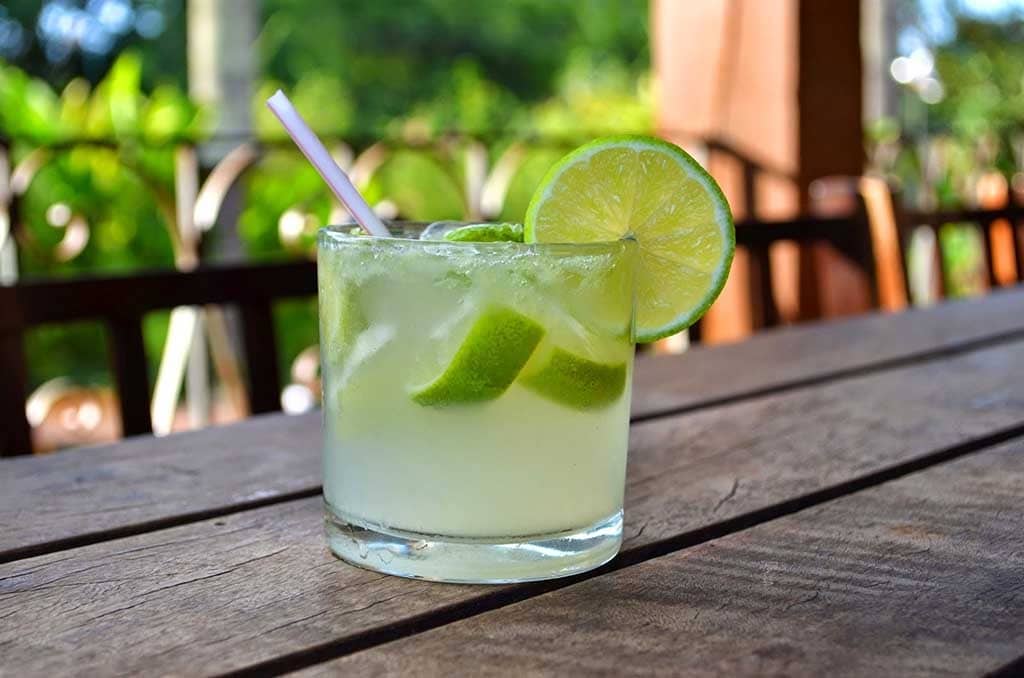
Where is your favorite getaway to recharge your batteries?
For a quick recharge I like to go for a walk in nature with a friend. When I have more time, my family’s favorite place to visit is Maui, it’s a true paradise. The vibe is relaxed and friendly and our family does something active every day like outrigger canoeing or paddle boarding. Being there with my family is a true joy.

Are you an early riser or night owl?
I’m naturally a night owl, but when we had our twin girls I was forced to become an early riser. My daughters were infants when I started working on my first novel so I’d wake up at 5am to get in some writing time before my family woke up and I had to get ready for work. My husband and I were both CEOs at that time which was not easy.
What superlative would best describe you in high school?
Most versatile. I was a nerd and honors student, a varsity cheerleader, the lead in our school musical, a sprinter on the track team, and was also in student government. I think it was hard for people to classify me and it also meant that I had a lot of different groups of friends, which broadened my perspective.
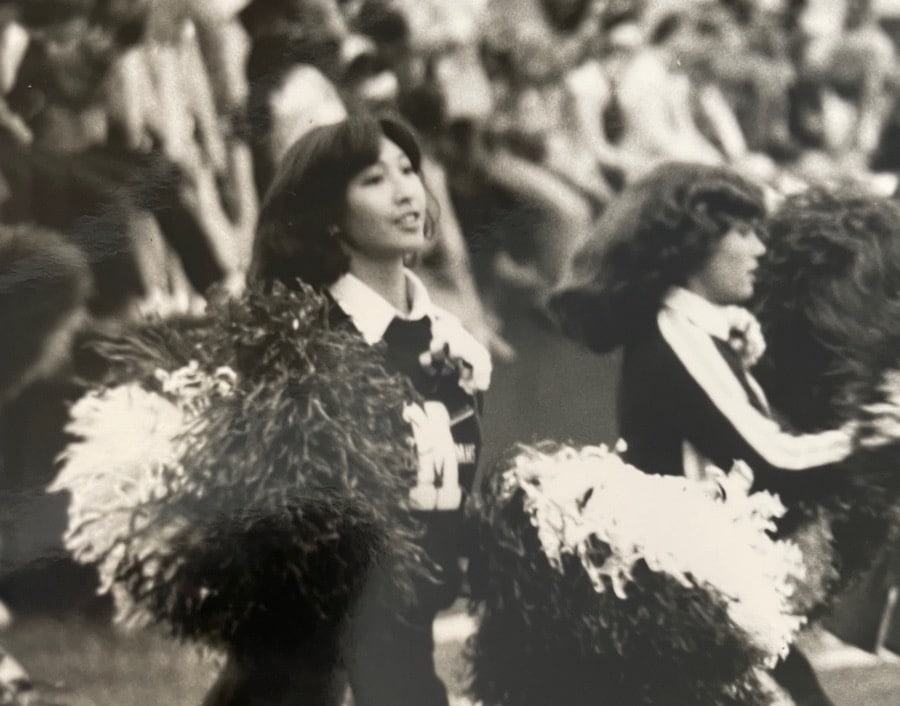
I was also one of the few Asians in our high school. I had a very good Asian friend and people kept asking if we were sisters. I said, “No, I’m Korean and Angela is Chinese.” And they’d reply in all seriousness, “Oh, so you’re cousins.” My friend and I took to calling each other “cousin” in the school hallways after that.
What skill would you encourage young girls to work on as students or early in their careers?
Tenacity. As Einstein said, “Genius is 1% inspiration and 99% perspiration.” If you have a goal or a dream you want to pursue, you will only succeed if you have tenacity and you put in the effort. Believe in yourself, hone your skills, work hard, seek help when needed, and just go for it. Shake off any feelings of discouragement and never give up.
What is your favorite Korean restaurant?
I live in Connecticut and there aren’t a ton of options around here, but at least K-Town in NYC is close by. Our favorite family Korean restaurant is called Kunjip and it’s on W 32nd Street in NYC. My mom, Dr. Young-Hee Lowe, usually gets a private room and we enjoy haemul pajun, beef tongue, galbi, and my sister’s favorite naengmyeon.
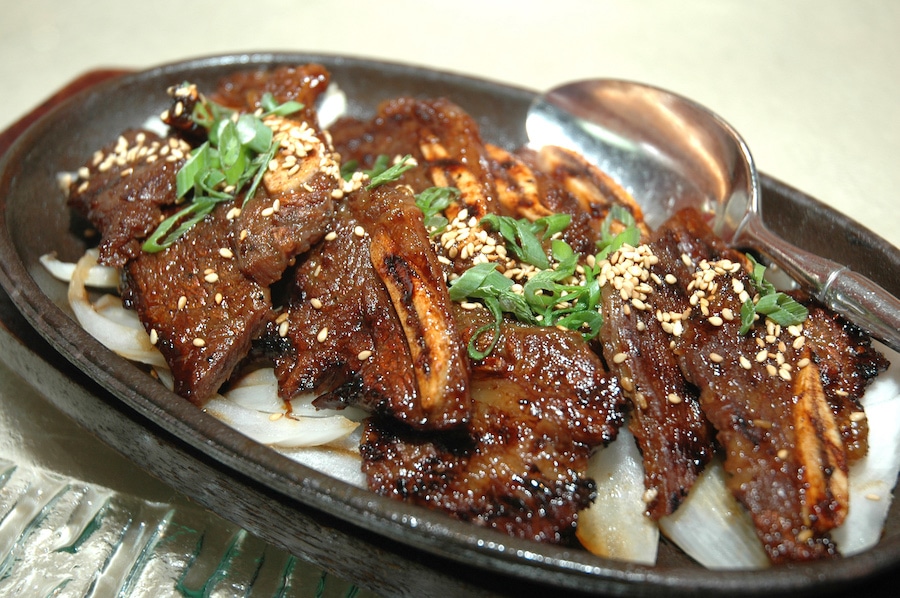
What are the books you most often gift to people (other than your own)
One of my favorite books to give is “The Fountainhead” by Ayn Rand. The main character, a talented young architect named Howard Roark, has a vision of modern architecture and he never wavers from his ideals despite many hardships; for someone to stick to their principles so strongly was inspiring.
Also, having been an executive at Nike with a love of sports, a book that I’ve recently given to others is “The Boys in the Boat”. It’s about the American crew team’s quest for gold at the 1936 Berlin Olympics. Who knew how thrilling a boat race could be?
As a female executive, what are your thoughts on work-life balance?
A word of caution to other women: don’t set yourself up for failure by expecting to achieve a perfect work-life balance. That implies everything will be in harmony which is rarely the case. It’s more realistic to expect that at times in your life some elements (career, health, family, community, kids, spirituality) will require more attention. I like to think of it as “work- life juggling”. You’ll always have a number of balls in the air and at certain moments one of the balls is higher up, meaning it requires more attention and that is perfectly fine.
A big part of being able to “have it all” is to have a supportive spouse or partner who is a true teammate and takes an active role in helping to raise your family.
Did you ever have a big failure/disaster that ended up being a blessing?
Yes, I started my career as a food scientist inventing new food prototypes. I was still fairly new to the job when my boss’ boss stole my new product ideas and passed them off as his own. I couldn’t believe what happened and I knew it wasn’t right. When I confronted the big boss he said, “I’m in charge and I can do whatever I want. If you ever run a business you can do what you want.”
I looked him in the eye and said, “When that happens I certainly will never treat anyone the way you’re treating me now.” It was my first big career disaster and I could find no one to advocate for me.
It prompted me to realize that I had to take action to ensure my future success. I learned how to take charge and think outside the box. I became proactive about finding great mentors and doing work that would set me apart from others. This set me on the path to want to run a business and eventually become a CEO. So the outcome of the disaster was that it propelled me to achieve more than I ever imagined possible.
Getting on a public company board is so difficult for Asian Americans. How did you make that happen?
A habit that has served me well is that I gravitate toward people whom I admire. I was on an investment committee for a VC fund and another woman on the committee impressed me with her smarts. I reached out to connect with her and it turns out we both were Cornell grads. I mentioned that I was looking for a public board seat and she said she was the chief counsel of GoPro and they were looking for a new board director. Another classmate of ours from Cornell who was a mutual friend vouched for me and recommended me highly- that quickly got me into the nomination process.
Most board seats are gotten through networking so my advice is to really utilize your network and don’t be afraid to reach out to people whom you respect. You also have to be willing to help others- even if it may not directly benefit you it’s always good to pay it forward.
What is your advice for standing up to bullies?
My experience with bullies is that if you stand up for yourself (and for others) quickly, decisively, and confidently you will win their respect. Don’t ever allow anyone to treat you in a way that is disrespectful or makes you feel uncomfortable. As a leader (no matter what stage you are in your career) you have to have the courage to confront bullies and the skill to figure out how to win them over. Sometimes the genesis of bullying is ignorance, so it’s an opportunity to expand someone’s thinking. I have found that humor is often a good tool. If all else fails then a quick knife hand strike to the throat is always an option.
What is your advice for being confident at a low point in your life or career?
Sometimes you simply must ignore what others are saying and push forward with what you believe. When I was in the process of getting my novel, “The Closer“, published, some people wanted me to change the main character from an Asian woman to something else. I was told that readers weren’t interested in a story about smart, inspirational women struggling to succeed in business.
I was told that the idea of a secret society of women helping each other was not relevant. Ultimately, I decided to maintain control over my product and tell my story in the way I wanted to, which is why I decided to go the independent publishing route. I’m happy that I did so because the support and positive feedback from readers has been so gratifying.
The thing I learned is that whenever you are trying to do something new it’s easy for others to offer criticism. Do not let others derail you from whatever it is you want to achieve and never lose your belief in yourself.
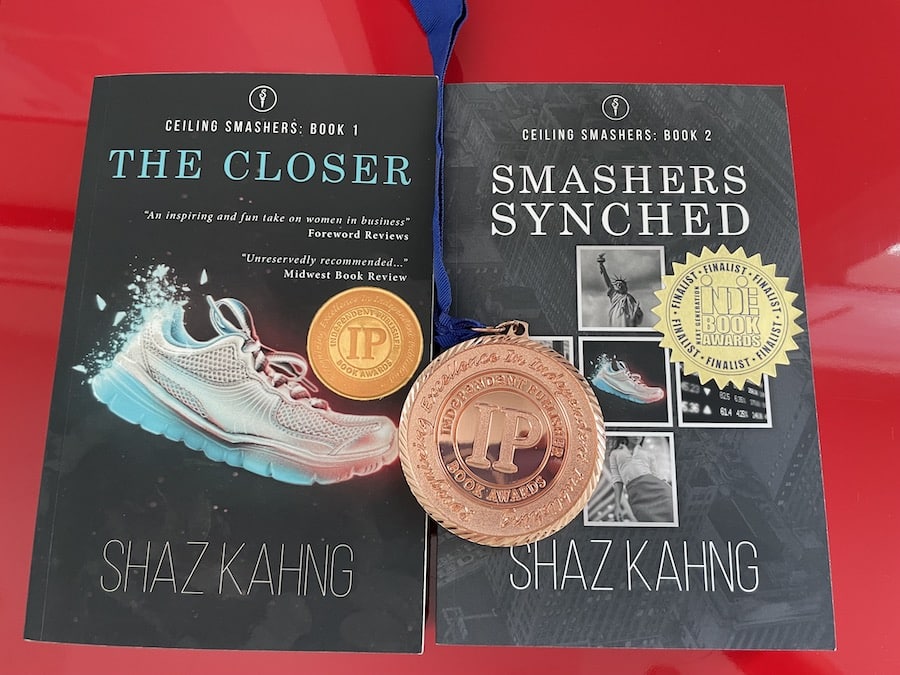
What are some of the Superpowers you share most often:
- Superpower 1: Be resourceful. Solutions will not be handed to you and more often than not you will need to create opportunities for yourself.
- Superpower 2: Respond with Resilience. Recover from bad situations as quickly as possible and turn it to your advantage.
- Superpower 3: Be your own best advocate. Stand up to bullies.
- Superpower 5: Always Be Confident. Project confidence even when you don’t feel it.
What is your system for time management and productivity?
First and foremost I take care of my health, because if you aren’t healthy you can’t do the things you want or be there for your family. I practice Tae Kwon Do along with my daughters three times a week, play tennis twice a week, and do functional training. Each day I have a schedule of how I plan to spend my time and I have a list of the things I want to accomplish. I’m pretty efficient with my time and am able to multitask- like putting in a load of laundry before hopping on a board call. It is also important to build in breaks for yourself so I have times set aside to read or practice Spanish on Duolingo.
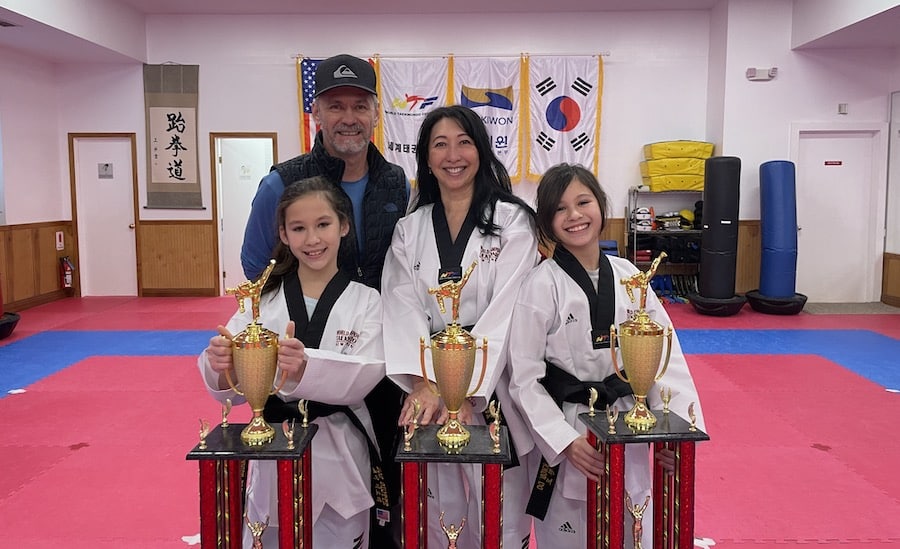
What did you learn at business school?
I went to business school because I was a scientist who wanted to run a business, so I was making a career change. I attended Wharton when I was still pretty young and it was a tremendous learning experience- I met so many amazing classmates who have become lifelong friends and I was exposed to so many new subject areas and lessons.
One of the most valuable experiences for me was learning how to work effectively in teams especially with some strong personalities. I learned so much from my classmates and have found that the network of great people I met in school has helped me throughout my career and has enriched my life immeasurably.
What is one thing you might do differently 20 years ago knowing what you know now?
I’ve always been very goal-oriented, achieving one thing and then moving to the next target on the list. The first time I ever took an extended break between jobs was after I left Nike because I had to honor a yearlong non-compete agreement. It was such a luxury to have some time to decompress, travel, work on my golf game, and pursue other interests. So if I had to do it over I would have built in a couple more breaks in my career without feeling guilty about it!
Curious to learn more? Check out Talks with Google featuring Shaz Kahng





